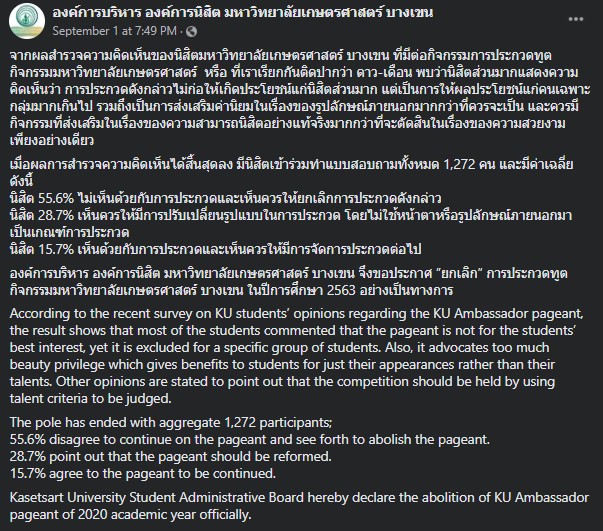Kasetsart University cancels faculty pageant
University students in Thailand would be familiar with the concept of beauty pageants, which are usually held among first-year students who are selected as “university representatives” based on their performances.
As much as it’s a fun tradition, Bangkok’s Kasetsart University (KU) recently made the bold decision to cancel its faculty beauty pageant after conducting a survey among students last month.
This got a ton of attention from netizens and the media as pageants are seen as a big part of uni culture – and here’s why making this move is helping pave the way for a more inclusive environment in schools.
Another interesting take on Thai uni culture:
Daw Duen contests in Thai university
Daw Duen (translated to ‘Star and Moon’ in Thai) contests, commonly known as beauty pageants, happen annually at the beginning of the year in almost every university in Thailand.
The main purpose of such contests is to find students who can best represent the university, and go on to join various campaigns and ceremonies hosted by the school.
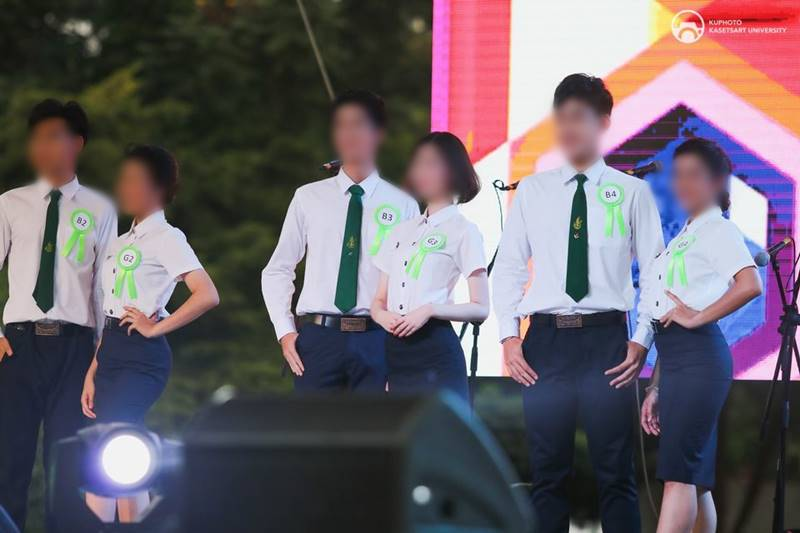
Image credit: องค์การบริหาร องค์การนิสิต มหาวิทยาลัยเกษตรศาสตร์ บางเขน
First-year students from each major of a faculty will be selected by classmates and seniors to join a faculty-level contest, where winners will go on to take part in the main pageant with winners from other departments. Besides the “Beauty King and Queen”, there are mini competitions to see who wins Comedy King and Queen as well.
These contests are typically put together by student management committees, together with suggestions and help from university staff and professors. Other students are invited to join as audience members, and there is much fanfare that leads up to the whole affair. Sometimes, real celebs take part as special guests too.
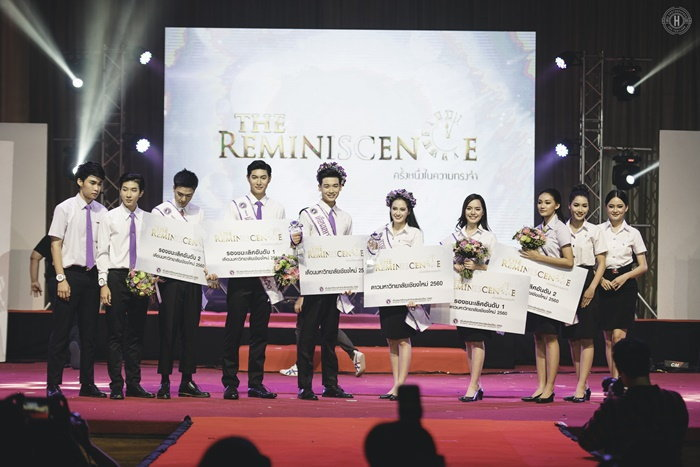
Image credit: Sanook
During the show, contestants are expected to walk in a fashion show in their uniforms and other themed costumes. They can also showcase their talents like dancing, singing, and acting, as well as go on to a Q&A round to test their wit and perspectives.
However, the underlying focus that factors into choosing the winners is their appearance, which contributes to the superficial nature of pageants as a whole. This is also the reason that prompted KU to make a change.
Students voted to cancel event this year
When it comes to Daw Duen contests, seniors and classmates of each faculty are the ones “in charge” of nominating contestants to join the main event, which is largely based on one’s appearance and personality.
Even if contestants are required to showcase their talents and respond to questions asked during the Q&A segment, many students have still pointed out that looks are the main “hidden” criteria when it comes to voting a winner.
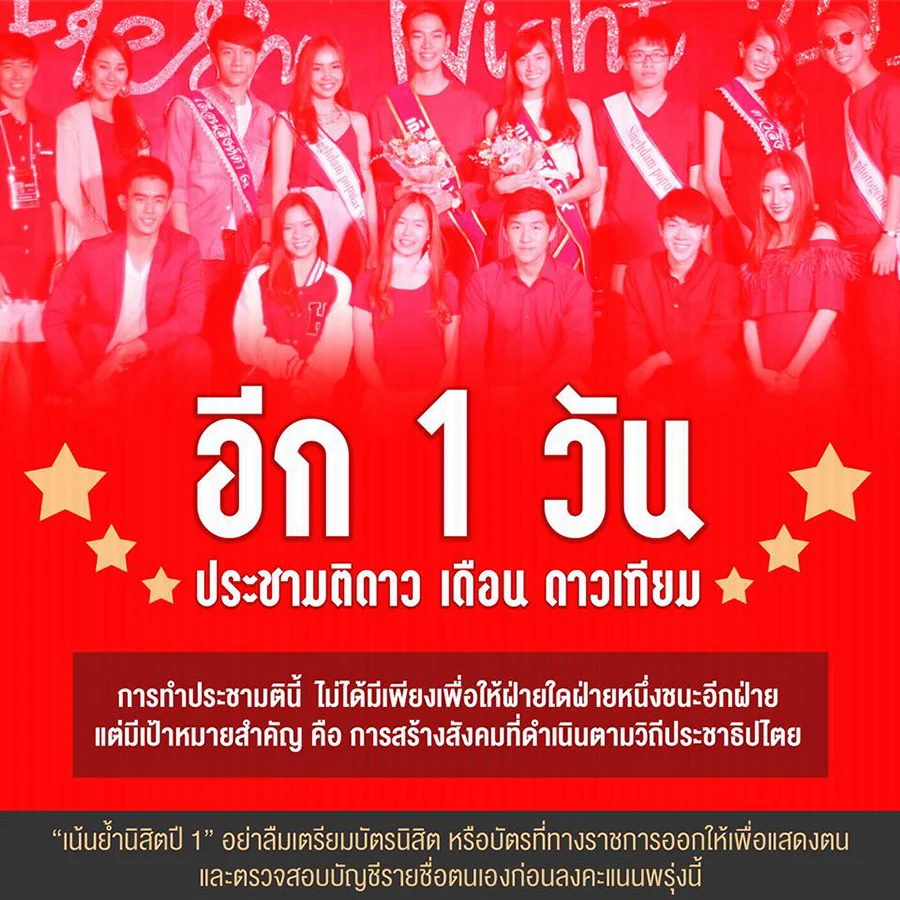
The public vote in 2018 was announced for all first year students to express their opinion at Chulalongkorn University Image credit: Workpoint Today
In 2018, students from Chulalongkorn University’s Faculty of Political Science expressed their opinions in a public vote, where they brought up that winners of the beauty pageant were mostly “pretty girls and handsome boys”, and that the winners of the comedy contest were often peers in the LGBTQ+ community.
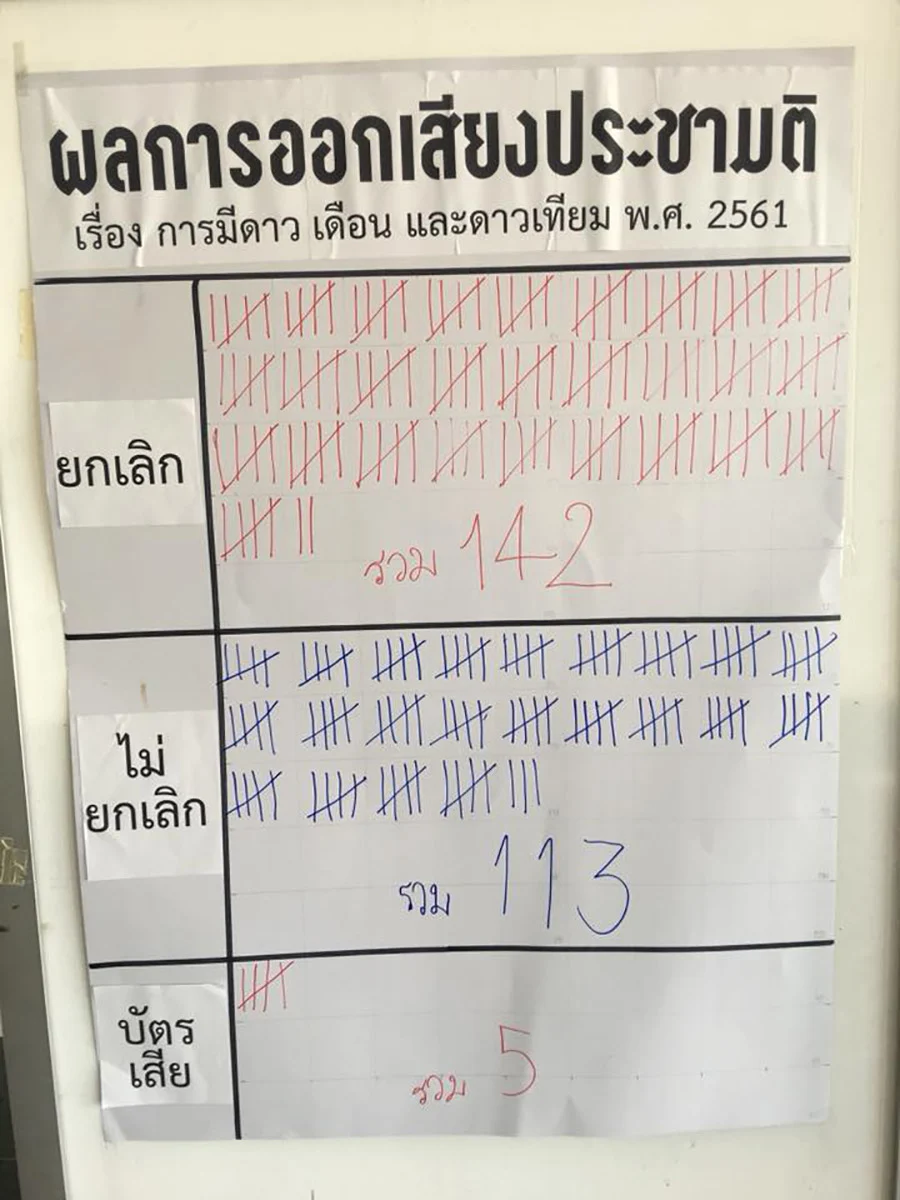
142 students voted to cancel the beauty contest at Chula’s Faculty of Political Science
Image credit: Workpoint Today
They then talked about how this could lead to a “beauty privilege” forming amongst students, along with the idea that those who identified as queer had to fall into the funny stereotype – something often seen in Thai media, where LGBTQ+ members are often used as comedy relief.
On 1st September 2020, KU’s student management organisation released a post that informed all students and faculty members that the university was cancelling its beauty pageant for the year. This was concluded after a public vote among 1,272 students, with the majority of 55.6% voting against it.
The post shared that most students felt that the pageant was not in the students’ best interest, and that it did not promote inclusivity. Many agreed that it focused too much on “beauty privilege” and appearances, instead of their talents and skills.
However, others felt that the pageant should be reformed instead, and 15.7% voted for it to go on. But due to the majority vote, the beauty pageant was cancelled for this academic year.
Netizens showed their support
KU’s post got lots of attention from Thai netizens of all ages, with over 6.7k likes and 2.9k shares. Comments started pouring in, with people saying that this was a good start to educate others about the concept of “beauty privilege” among youths.

Translation: It’s great that students focus on the benefit of the activity, and that the university allowed students to express their opinions.

Translation: I am excited to see the opinions and perspectives of the younger generation

Translation: Aside from their ideas, I’m also impressed that they listened and were open to the opinions of others by launching a survey.
On that note, others also provided valid alternative perspectives, stating that the pageant had its own benefit. They added that the contest could be taken as a form of entertainment and should be continued, but revamped to focus more on the talents of the competitors instead of their looks.
Beauty privilege in Thailand
An important step in working towards not excluding others is to recognise how social norms and standards can shape our perception of beauty.
In Thailand, it isn’t uncommon for media outlets like magazines and television to offer tips on how to get light skin, skinny bodies, and other ways to “fit in” to conventional beauty ideals.
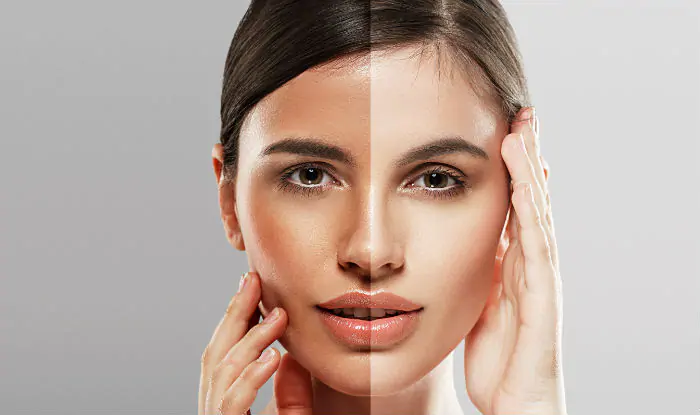
Image credit: India.com
When I was younger, I tried to do everything to get lighter skin as I thought it would mean being perfect. I didn’t like my curly hair just because many people told me straight hair was better. I tried to do different things just to achieve the “perfect appearance” to escape from body shaming.
Skin colour is one of the biggest topics in Thailand, where many women desire to have lighter skin in hopes of being more beautiful. This only leads to colourism even amongst Thais, on top of self-esteem issues.

Whitening pills by SeoulSecret
Image credit: รอดไวเลิศ Rotweilert
The problem is only further amplified with influential brands promoting “white skin” as the ideal standard. For example, an advertisement for a skin whitening capsule launched by brand SeoulSecret promoted the idea that women had to take care of their light skin in order to be seen as “winners” and “the most beautiful”.
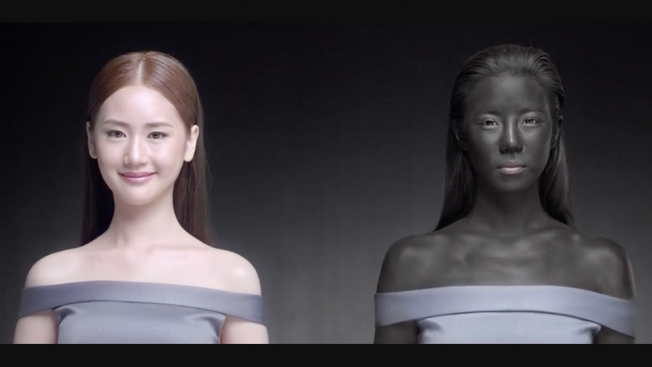
Image credit: Thumbs up
While many Thais are obsessed with having white skin, many others resisted this and This got tonnes of backlash towards the brand and its models, which prompted them to apologise for their ignorance
This incident raised awareness to many about how the cosmetic industry can promote harmful concepts of what it means to be beautiful. It’s important for us – whether men or women – to value and respect ourselves in other ways and learn to be happy in our skin.
This is why events like beauty pageants can get touchy, especially with the pageant scene being a huge aspect of Thai entertainment. They are superficial in nature – after all, it is a beauty contest. There is nothing outright wrong with that – however, should beauty be the main focus for events in schools?
A change in student pageants
Bringing it back to Daw Duen pageants in universities, netizens have raised the point that it is important for these contests to focus more on the talents and personalities of the students – after all, the point of it is to pick someone who would be a good fit as a student ambassador, not a beauty queen or king.

Image credit: องค์การบริหาร องค์การนิสิต มหาวิทยาลัยเกษตรศาสตร์ บางเขน
It’s still a controversial issue whether pageants should be abolished all together or not – but for this decision to be made, the choice should come from the students themselves.
As for me, I see this mainly as a form of entertainment that students across campus can look forward to watching. Plus, it allows participants to up their skills when it comes to confidence too.
KU’s decision to conduct a survey and cancel their pageant for the year is a huge step in sparking conversations about what it truly means to take part in such contests. With students raising important issues like inclusivity and beauty privilege, it can even be a gateway into changing the way such contests are being conducted, making it a more all-rounded event everyone can enjoy.
Let’s hope this inspires other institutions to open the floor to different perspectives and amplify their students’ voices in order to improve uni culture in Thailand, which youths can carry on with them into adulthood.
Featured image adapted from: Sanook
Enjoying The Smart Local Thailand? Follow us on Facebook and Instagram for all things Thailand

Drop us your email so you won't miss the latest news.
